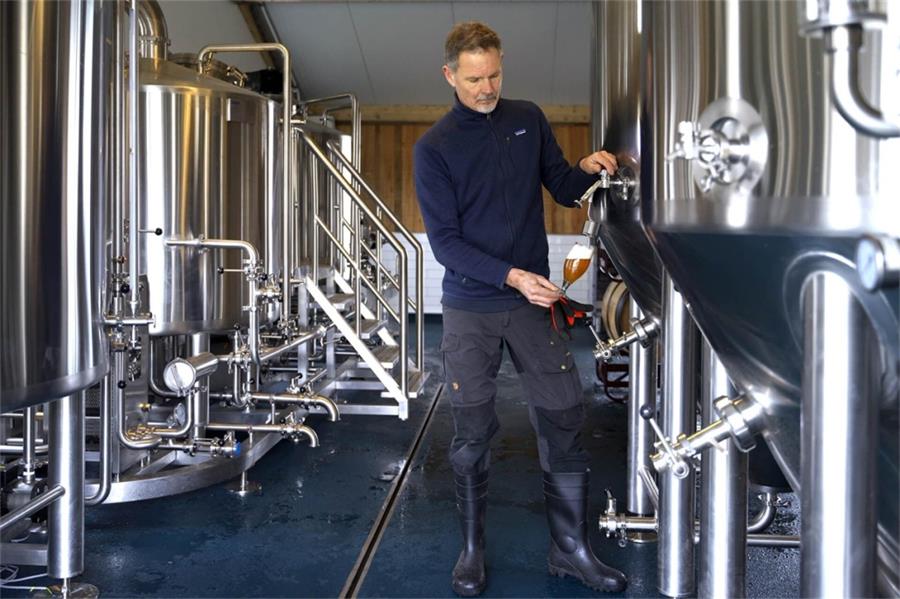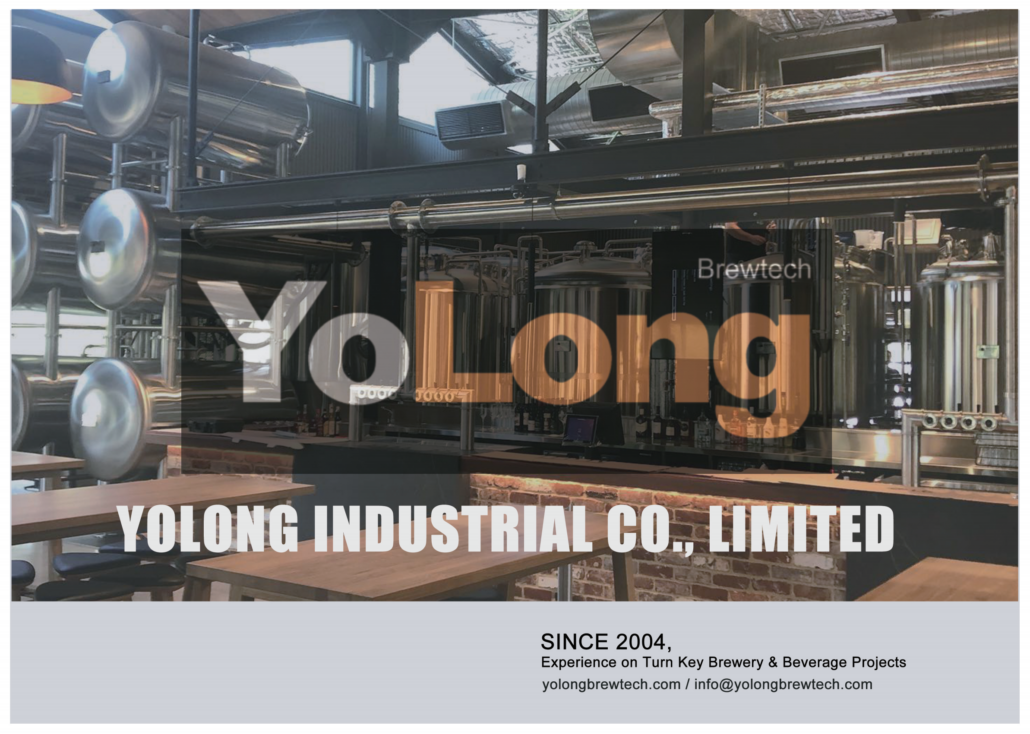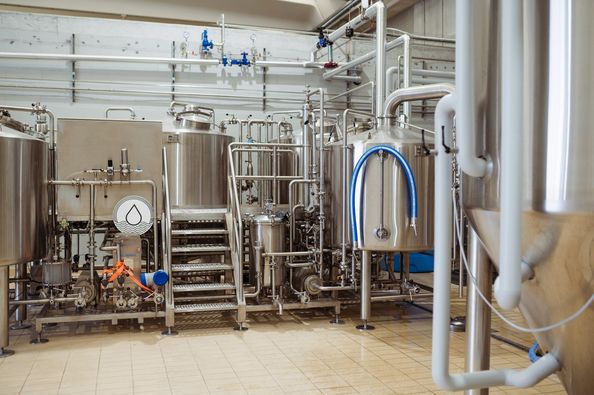Automatic Beer Machine
In today’s fast-paced world, convenience and automation are paramount, even when it comes to brewing your favorite beer. Enter the automatic beer machine, a revolutionary device that takes the guesswork out of home brewing, offering enthusiasts a seamless experience from grain to glass. Whether you’re a seasoned brewer or a curious novice, this guide will walk you through everything you need to know about automatic beer machines, from the basics to the intricacies of selecting the right model for your needs.
Overview: What is an Automatic Beer Machine?
An automatic beer machine is a state-of-the-art appliance designed to simplify the beer brewing process. It automates most, if not all, stages of brewing, including mashing, boiling, fermenting, and in some cases, bottling. This innovation is perfect for homebrewers who want to enjoy crafting their beer without investing excessive time and effort in the manual brewing process. With various models on the market, automatic beer machines offer a range of features, capacities, and levels of customization, making it easier than ever to produce quality beer at home.
The Evolution of Beer Brewing: From Manual to Automatic
Traditionally, beer brewing has been a labor-intensive process requiring meticulous attention to detail. The brewing process involves multiple steps, including selecting ingredients, mashing, boiling, fermenting, and conditioning. Each step must be executed precisely to achieve the desired flavor, aroma, and texture. While this process is deeply satisfying for many, it can be time-consuming and prone to errors.
With the advent of technology, the brewing process has evolved dramatically. The introduction of automatic beer machines has transformed the brewing landscape, allowing users to control every aspect of brewing with minimal effort. These machines are equipped with advanced sensors, timers, and programmable settings, ensuring consistent results with each batch.

Presenting the Equipment Guide: Key Features of Automatic Beer Machines
When considering an automatic beer machine, it’s essential to understand the key features that differentiate various models. Here’s a detailed guide to help you navigate the options available on the market:
1. Brewing Capacity and Size
Automatic beer machines come in various sizes, ranging from compact units suitable for small batches to larger models capable of producing several gallons of beer at once. When selecting a machine, consider the amount of beer you plan to brew and the space available in your kitchen or brewing area.
2. Brewing Process Automation
The level of automation varies across models. Some machines handle only specific stages of brewing, such as mashing and boiling, while others offer complete automation, including fermentation and bottling. The more automated the process, the less hands-on involvement is required, making it easier for beginners.
3. Customization Options
For those who enjoy experimenting with different recipes, customization options are crucial. Look for machines that allow you to adjust temperature settings, brewing time, and ingredient proportions. This flexibility enables you to fine-tune your brew to match your personal taste preferences.
4. User Interface and Controls
Modern automatic beer machines often feature intuitive digital interfaces with touchscreens, making it easy to monitor and adjust the brewing process. Some even offer smartphone connectivity, allowing you to control the machine remotely and receive notifications when your brew is ready.
5. Cleaning and Maintenance
Brewing beer can be a messy affair, so a machine that is easy to clean is a significant advantage. Many models come with self-cleaning features or detachable components that can be easily washed. Regular maintenance is essential to ensure the longevity of your machine.
Detailed Comparison of Automatic Beer Machines
Brewing Capacity, Size, and Design
| Feature | Small Capacity Models | Medium Capacity Models | Large Capacity Models |
|---|---|---|---|
| Brewing Volume | Up to 2 gallons | 2 to 5 gallons | 5 to 10+ gallons |
| Size & Footprint | Compact, countertop | Mid-size, requires more space | Large, dedicated brewing area |
| Design | Sleek, minimalistic | Functional, versatile | Robust, professional-grade |
| Customization | Limited | Moderate | Extensive |
Brewing Process Automation
| Stage | Basic Models | Intermediate Models | Advanced Models |
|---|---|---|---|
| Mashing | Manual or semi-automatic | Fully automatic | Fully automatic |
| Boiling | Manual or semi-automatic | Fully automatic | Fully automatic |
| Fermentation | Requires external setup | Semi-automated | Fully automatic with integrated system |
| Bottling | Manual | Manual or semi-automatic | Fully automatic |
Supplier and Price Range
| Supplier | Price Range | Special Features | Target Audience |
|---|---|---|---|
| Brewsly | $300 – $600 | Compact, easy to use | Beginners, small households |
| PicoBrew | $800 – $1,200 | Smart connectivity, recipes | Intermediate brewers |
| Brewie | $1,500 – $2,500 | Fully automated, customizable | Enthusiasts, advanced brewers |
| Grainfather | $1,000 – $2,000 | Large capacity, high customization | Serious homebrewers |
Installation, Operation, and Maintenance
| Aspect | Installation | Operation | Maintenance |
|---|---|---|---|
| Ease of Setup | Plug-and-play | Requires minimal assembly | Needs assembly, expert help |
| User Friendliness | Intuitive controls | Guided, user-friendly | Requires technical knowledge |
| Cleaning Process | Basic rinsing | Self-cleaning features | Requires disassembly, thorough cleaning |
The Brewing Process: How Automatic Beer Machines Work
1. Mashing
Mashing is the first stage of brewing, where the malted grains are mixed with water to convert the starches into fermentable sugars. In an automatic beer machine, this process is handled with precision. The machine heats the water to the exact temperature needed for mashing and maintains it throughout the process. This ensures that the conversion of starches is consistent, which is crucial for the beer’s flavor and alcohol content.
2. Boiling
Once mashing is complete, the wort (the liquid extracted from the mashing process) is boiled. During boiling, hops are added to impart bitterness and aroma to the beer. Automatic beer machines often feature programmable boiling times and hop additions, allowing you to replicate recipes accurately. The machine will automatically control the temperature and duration of the boil, ensuring a consistent outcome.
3. Fermentation
After boiling, the wort is cooled and transferred to a fermentation vessel. This is where yeast is added, and the beer begins to ferment, converting sugars into alcohol. Some advanced automatic beer machines include integrated fermentation chambers with precise temperature control, allowing you to monitor and adjust the fermentation process remotely.
4. Bottling and Carbonation
Once fermentation is complete, the beer is ready to be bottled. Some high-end automatic beer machines include bottling and carbonation features, making the entire process from grain to glass completely automated. This step typically involves transferring the beer to bottles or kegs, where it can be carbonated either naturally (through a secondary fermentation) or with the addition of CO2.
How to Choose the Right Automatic Beer Machine
Selecting the right automatic beer machine depends on several factors, including your brewing goals, space, and budget. Here’s a breakdown of what to consider:
1. Budget
Your budget will largely determine the features and capabilities of the machine you can afford. Basic models are great for beginners and casual brewers, while more expensive machines offer advanced features for serious homebrewers.
2. Space
Consider the space you have available for brewing. Smaller models are ideal for apartments or homes with limited kitchen space, while larger models may require a dedicated brewing area.
3. Brewing Goals
If you’re looking to experiment with different recipes and brewing techniques, choose a machine that offers extensive customization options. For those who want a hands-off experience, a fully automated machine with integrated fermentation and bottling is the best choice.
Advantages and Limitations of Automatic Beer Machines
Advantages
- Convenience: Automatic beer machines simplify the brewing process, making it accessible to everyone.
- Consistency: With precise control over brewing parameters, these machines ensure consistent results with each batch.
- Customization: Advanced models offer a high degree of customization, allowing you to create unique brews.
- Time-Saving: Automation reduces the time and effort required for brewing, allowing you to focus on enjoying the final product.
Limitations
- Cost: High-quality automatic beer machines can be expensive, making them a significant investment.
- Learning Curve: While these machines simplify brewing, there can still be a learning curve, particularly with more advanced models.
- Limited Batch Size: Most automatic beer machines are designed for small to medium-sized batches, which may not be suitable for those looking to brew large quantities.
Comparing Automatic Beer Machines: What to Look For
When comparing different automatic beer machines, consider the following parameters:
| Feature | Importance | Description |
|---|---|---|
| Price | High | Balance between budget and features |
| Capacity | Medium | Depends on the volume of beer you want to brew |
| Customization | High | Essential for those looking to experiment with recipes |
| Automation Level | High | Determines how hands-off the brewing process is |
| Size and Design | Medium | Must fit your available space and aesthetic preferences |
| Ease of Use | High | Important for beginners |
| Cleaning and Maintenance | High | Easier maintenance leads to better longevity and hygiene |

FAQ
| Question | Answer |
|---|---|
| What is an automatic beer machine? | It’s a device that automates the beer brewing process, making it easy to brew quality beer at home. |
| How does an automatic beer machine work? | It automates stages like mashing, boiling, and fermentation, allowing you to produce beer with minimal effort. |
| Is an automatic beer machine worth the investment? | Yes, if you enjoy brewing and want consistent results without the manual effort. |
| Can I customize recipes with an automatic beer machine? | Many machines offer customization options, letting you adjust brewing parameters to suit your taste. |
| How much space do I need for an automatic beer machine? | Space requirements vary by model; some are compact enough for small kitchens, while others need more room. |
| How do I clean and maintain an automatic beer machine? | Most models are designed for easy cleaning, with self-cleaning features or detachable components for washing. |
| What are the best brands of automatic beer machines? | Brands like Brewsly, PicoBrew, and Grainfather are highly recommended for their quality and features. |
Conclusion
Automatic beer machines are transforming the way we think about home brewing, offering an accessible, convenient, and consistent way to craft beer. Whether you’re new to brewing or a seasoned enthusiast, there’s an automatic beer machine to suit your needs and elevate your brewing experience. As you consider the options, keep in mind the key factors like capacity, customization, and price, and you’ll be well on your way to brewing the perfect pint with ease.
Additional FAQs About Automatic Beer Machines
1) Do Automatic Beer Machines support both extract and all‑grain brewing?
- Mid to high‑end models include mash baskets and step‑mash profiles for full all‑grain; entry models are optimized for extract/partial mash. Check max grain bill and mash efficiency specs.
2) How precise is temperature control during mash and fermentation?
- Quality machines hold mash within ±0.5–1.0°C using PID control. Units with integrated fermentation chambers typically maintain ±0.5–1.0°C with a thermowell probe.
3) Can I pressure‑ferment and do closed transfers with an Automatic Beer Machine?
- Some systems include pressure‑rated fermenters (5–15 psi) and compatible spunding valves. If not included, pair the machine with a pressure‑capable fermenter for closed transfers.
4) What’s the realistic batch time and energy use for a 5 gal brew on a 120V unit?
- Typical total hot‑side time: 3.5–5 hours. Energy use: ~6.5–9 kWh with modern insulation and efficient chilling. 240V systems shorten time to boil.
5) How do I keep oxygen pickup low on automated setups?
- Purge vessels and lines with CO2, use sealed hop additions where supported, employ closed transfers, and avoid splashing post‑boil. Calibrate fittings and replace worn gaskets regularly.
2025 Industry Trends for Automatic Beer Machines
- Smarter automation: App‑connected controllers with cloud logging, gravity estimation via tilt/pressure models, and AI‑assisted mash schedules.
- Integrated fermentation: More machines ship with jacketed or Peltier‑assisted chambers and pressure capability for spunding.
- Energy efficiency: Neoprene jackets, lid insulation, and optimized recirculation reduce hot‑side energy by 10–20%.
- Plug‑and‑brew ingredient packs: Pre‑scaled grain/hop packs with QR recipe loading improve repeatability for beginners.
- Safety and compliance: Wider adoption of GFCI plugs, thermal cutoffs, and food‑grade silicone hoses rated for boil temps.
2025 Benchmarks and Pricing Snapshot
| Spec/Item | 2023 Avg | 2024 Avg | 2025 YTD | Notes/Sources |
|---|---|---|---|---|
| 120V all‑in‑one (5–6 gal) | $300–$600 | $280–$580 | $270–$560 | App control increasingly standard |
| 240V all‑in‑one (10–12 gal) | $500–$1,000 | $480–$950 | $450–$900 | Faster heat to boil |
| Integrated fermenter add‑on | $250–$600 | $230–$560 | $220–$540 | Some pressure‑rated to 15 psi |
| Mash temp stability (PID, °C) | ±1.2 | ±0.8 | ±0.5–0.8 | With thermowell probe |
| Brew day energy (5 gal, kWh) | 8–11 | 7–10 | 6.5–9 | Better insulation/chilling |
| Closed transfer adoption (%) | 28 | 36 | 44 | Homebrew surveys/OEM data |
Reference hubs:
- American Homebrewers Association (AHA): https://www.homebrewersassociation.org/
- Brewers Association (quality fundamentals): https://www.brewersassociation.org/
- Master Brewers Association Technical Quarterly (process insights): https://www.mbaa.com/publications/tq/Pages/default.aspx
Latest Research Cases
Case Study 1: Pressure Fermentation Upgrade on an Automatic Beer Machine (2025)
Background: A home brewer using a 120V automated system observed hop fade and slight oxidation in hazy IPAs.
Solution: Added a 7.5 gal pressure‑capable fermenter with spunding at 10 psi, CO2‑purged closed transfers, and in‑line dry‑hop dosing under pressure; calibrated PID and thermowell probe.
Results: Post‑transfer DO reduced by ~70–100 ppb; 30‑day haze and aroma retention improved in sensory triangle tests; contamination rate dropped to zero over 10 batches. Sources: AHA best practices; BA oxygen control guidance.
Case Study 2: Energy and Throughput Gains via Insulation and Efficient Chilling (2024)
Background: Long time‑to‑boil and slow chilling on a 5 gal automatic system raised utility costs.
Solution: Added neoprene jacket and lid insulation, optimized recirculation, and used a pre‑chilled immersion loop with whirlpool.
Results: Time‑to‑boil reduced by 18%; chill 100°C→20°C cut from 25 to 14 minutes; brew day energy down ~15%; earlier pitch reduced lag by ~6 hours. References: OEM application notes; AHA knowledge base.
Expert Opinions
- John Palmer, Author of “How to Brew”
Viewpoint: “Automation is only as good as your fundamentals. Accurate temperature control and oxygen management will outpace most hardware upgrades.” - Denny Conn, Homebrewing Educator and Author
Viewpoint: “Keep it simple and repeatable. Closed transfers and consistent sanitation deliver the biggest quality gains on Automatic Beer Machines.” - Annie Johnson, AHA Homebrewer of the Year
Viewpoint: “Don’t neglect water chemistry. With tight temperature control, small mineral tweaks meaningfully shape flavor on compact automated systems.”
Practical Tools and Resources
- American Homebrewers Association: Tutorials, safety, sanitation — https://www.homebrewersassociation.org/
- Brewfather App: Equipment profiles, fermentation tracking — https://brewfather.app/
- Brewer’s Friend: Recipe builder and calculators — https://www.brewersfriend.com/
- Bru’n Water: Homebrewing water chemistry — https://sites.google.com/site/brunwater/
- BA Quality resources (oxygen/sanitation): https://www.brewersassociation.org/
- Manufacturer guides (search by model): Firmware updates, insulation kits, and pressure‑fermentation accessories
Last updated: 2025-09-28
Changelog: Added 5 FAQs; 2025 trend table with benchmarks; two recent case studies; expert viewpoints; curated tools/resources for Automatic Beer Machine owners
Next review date & triggers: 2026-03-31 or earlier if average pricing shifts >10%, major firmware/app features change, or new AHA/BA oxygen/sanitation guidance is published
Share this entry
Interested in learning more about Brewing Systems including additional details and pricing information? Please use the form below to contact us!
YOLONG BREWERY EQUIPMENT FAQS
- Commercial Brewery / Craft Brewery / Microbrewery / Nanobrewery
- What is The Difference Between Craft Beer and Industrial Beer?
- The Bespoke Differences In Custom Brewing Systems
- Everything You Need to Know About Kettle Souring
- How to Choose Brewing Equipment for Your business?
- How To Choose The-Best Partner To Build Your Commercial Microbrewing System?
- Two Detection Sensors That You Need To Use In Your Brewhouse System
- Remote Control Applications in Brewing Equipment/How does it work?
- How To Clean Your Brand New Brewery Tanks?

